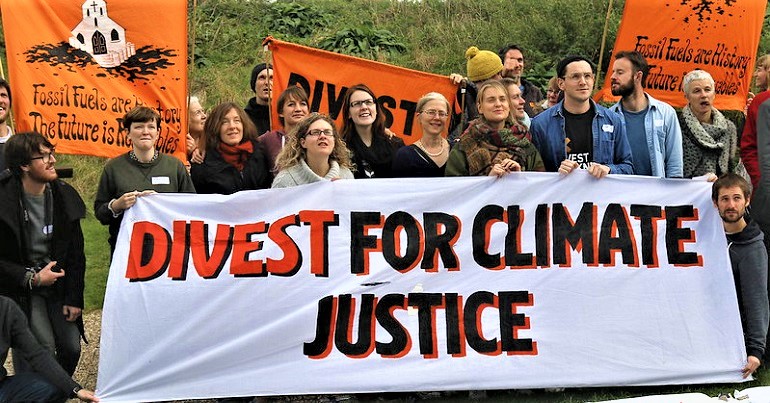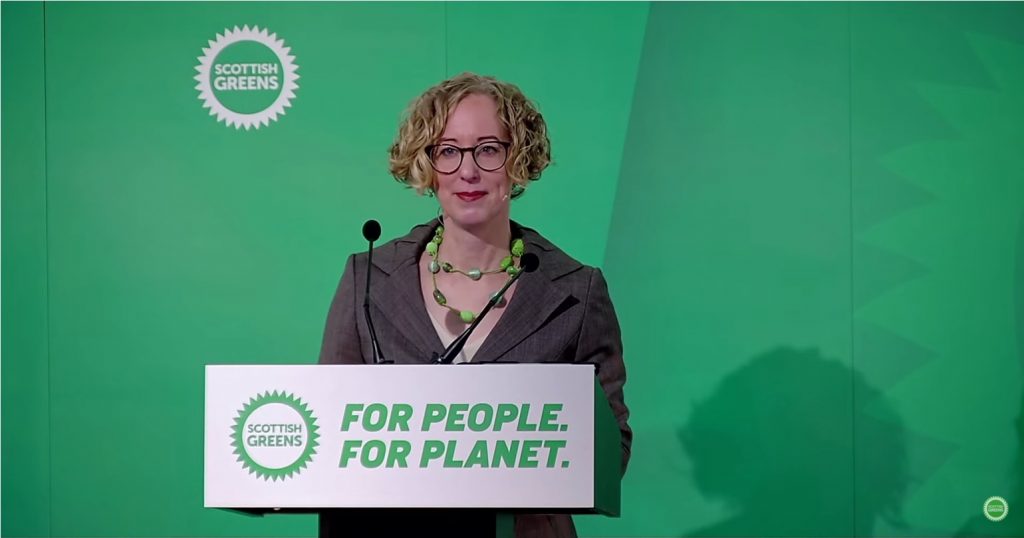Lancaster becomes 92nd UK university to divest from fossil fuels

Lancaster University has announced that it will divest all of its investment portfolios from fossil fuel companies. The announcement – a major victory for the student divestment movement – will also see the university’s over £3 million investment portfolio also screen out arms trade and tobacco investments.
Lancaster University’s commitment makes it the 92nd UK University to divest from the industry and follows years of campaigning from students and staff at the university. Spanning seven years, the Lancaster University divestment campaign has been led by multiple generations of students. It began in 2014 with the founding of the Lancaster University Ethical Investments campaign by a coalition of social and climate justice societies – including the People & Planet and the SPEAK Societies.
Laura Clayson, Campaign Manager: Climate Justice at People & Planet – the UK student activist network that supports divestment campaigns – said:
We are thrilled for Lancaster’s students and staff, past and present, who have been involved in this victory for climate and social justice. This is a result of decades of organising at the institution, particularly against the university’s links with the arms trade. The exclusion of both arms and fossil fuel companies acknowledges the intersecting injustices experienced by those impacted by the climate crisis and the increased securitisation of borders.
Clayson went on to echo student demands for Lancaster University’s Careers & Employability Service to also explicitly exclude oil, gas and mining companies from recruiting and advertising in university spaces. This is part of a coordinated national campaign under the banner ‘Fossil Free Careers’. Clayson said:
We now look forward to Lancaster aligning its careers practices with the green image it is constructing for itself, and adopt a policy that excludes oil, gas and mining companies from student recruitment. If these companies aren’t good investments, they aren’t good careers either: extractive industry jobs don’t make sense for students, the planet or the communities where they operate. It’s time for all universities to take these basic actions in solidarity with the Indigenous and frontline communities that are resisting fossil fuel extraction and experiencing climate impacts first and worst.”
Karen Ma, of Lancaster University Extinction Rebellion (‘LUXR’) – one of the many groups that have led the Lancaster University divestment campaigns over the years reiterated this, saying:
LUXR is excited to have worked successfully with the university on this project. After 7 years of campaigning started by our alumni, we are glad to have cracked this complex divestment issue! Now we are calling, like students across the country, for a Fossil Free Careers policy to be adopted, excluding oil, gas and mining industries from recruiting students to their environmentally destructive businesses.
Lancaster’s Pro Vice-Chancellor Professor Simon Guy said the decision to divest from fossil fuels would see the university’s investments “align with the University’s strategy vision of delivering transformative change”. He said:
Our teaching and research activities and our carbon reduction commitments are already well recognised as sector leading examples for supporting the challenges faced by climate change. I am therefore delighted that our investment strategies are now aligned with the University’s strategic vision of delivering transformative change.
We recognise this is a very important issue to our students and staff, past and present, and thank them for their engagement, support and encouragement in getting to this point.”
The global divestment campaign seeks to utilise the power of large, public institutions to remove the ‘social license’ the fossil fuel industry has to operate, by demonstrating their unwillingness to continue to invest in it.
Over 1,400 institutions across the globe have made public commitments to cut their financial ties to the fossil fuel industry. As a result, an estimated $39.88 trillion of investments have been withdrawn from the sector.
Such commitments have been made after consistent and sustained public pressure from grassroots activists and campaign groups.
When student activist network People & Planet launched the UK wing of the Fossil Free campaign in universities in 2012, no higher education institutions in the UK had committed to divest from the fossil fuel industry. But after the University of Glasgow became the first to divest in 2014, dozens have followed suit. Campaigns supported by People & Planet make up 42% of global educational institution divestment commitments.
PS. We hope you enjoyed this article. Bright Green has got big plans for the future to publish many more articles like this. You can help make that happen. Please donate to Bright Green now.
Image credit: Fossil Free Greater Manchester – Creative Commons




Leave a Reply